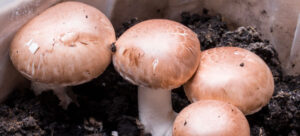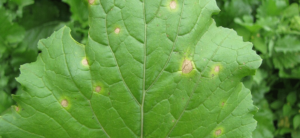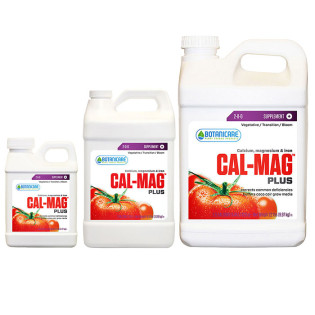
Copper is an essential micro-nutrient for plant growth. It is taken up through a plant’s root system from its growing medium and through its leaves in foliar applications.
Although not seen as often as other nutrient deficiencies, a copper deficiency can occur. Copper is known as an immobile nutrient, meaning that plants cannot transport it through their vascular system to areas of greatest need.
Why Is Copper Important To Plants?
Copper plays an essential role in the formation of chlorophyll, and is essential for proper enzyme activity. Copper is one of the required micro-nutrients needed to enable the process of photosynthesis.
It is also how our plants convert energy from light into energy it needs to grow and thrive. Copper is essential in plant respiration, and assists in plant metabolism of carbohydrates, proteins and nitrogen. Its also used as a natural fungicide.
Identifying Copper Deficiency In Plants
A copper deficiency can be diagnosed by examining our plant leaves and growth pattern. A copper deficiency causes stunted growth and pale green and yellow leaves that wither easily.
The first signs of a copper deficiency typically appear on the upper, younger leaves, which will start to become yellow on their tips and margins.
The leaf tips may eventually turn brown and curl under. Initially just a few leaves may appear wilted, but it could lead to a full wilting of the plant even with adequate watering. New shoots will often die back in the early stages.
- New leaves curl under at the tip
- Wilting
- Necrosis at leaf tips and margins turning dark copper-gray.
Examples Of Copper Deficiency On Leaves

How To Correct Copper Deficiency
Check pH first
One of the first things to take a look at is pH balance, in both soil and hydroponic growing systems. A pH imbalance will block nutrient uptake through the plant’s roots.
It is important to regularly check the pH, and to be sure to keep the pH within the appropriate range for soil or hydroponics.
The optimal pH range for most plants is between 5.5 and 6.5. In this range, the nutrients present in the soil or water are soluble, and are easily taken up through the plant’s root system.
When the pH level is outside of this range, even when the proper nutrients are present, they are not able to be absorbed by the plant.
Try adding copper fungicide
If your pH is in balance, the easiest solution is to apply a copper based fungicide such as copper-sulfate.
Another method a lot of gardeners and growers like to apply is the use of a nutrient foliar spray. Foliar feeding gives plants a nutrient boost, and results in lusher leaves, and bigger blooms and buds.
A foliar spray shouldn’t be a substitute for feeding and supplementation treatments at the plant’s roots, but it does provide a quick and simple way to give plants an extra nutrient boost.
Caution: Never apply a foliar spray when temperatures are in excess of 75°F to avoid burning the foliage.
Any fertilizer product that is intended for both soil or hydroponic grow systems is perfect for use as a foliar spray. Be sure to look for ones that contain essential micro-nutrients, like copper.
Especially in the case of micro-nutrients, and in this instance copper, foliar application brings the greatest benefit in comparison with supplementing the soil.
The foliar spray should be mixed at a diluted strength to avoid any leaf burn. To help the foliar spray stick to plants, you can add a little neem oil to your spray. Be sure to remember the undersides of the leaves as well.
Now that you know the benefits of monitoring the copper content in your soil and hydroponic growing systems, and what to do when you spot a deficiency, you can be sure to have the necessary tools on hand to keep your plants at their best.
Want to learn more about plant nutrient deficiencies?
Read our entire nutrient deficiency series as well as learning about micro vs macronutrients.










